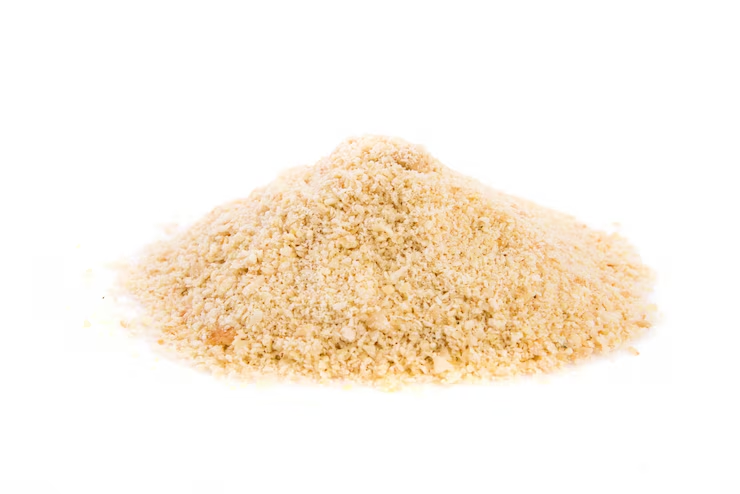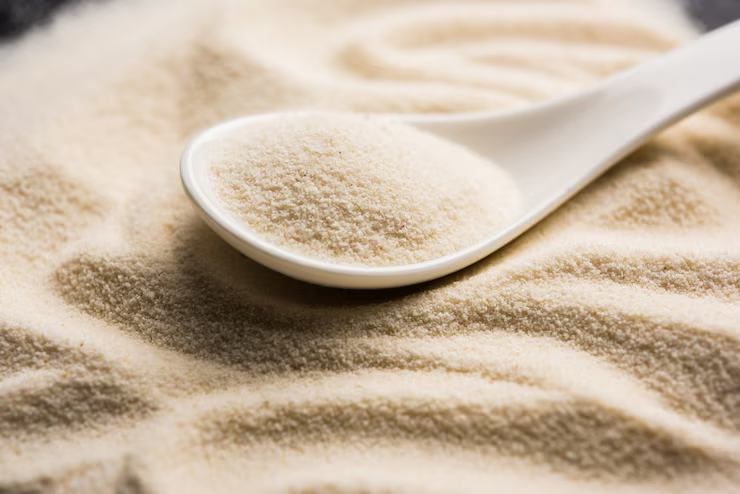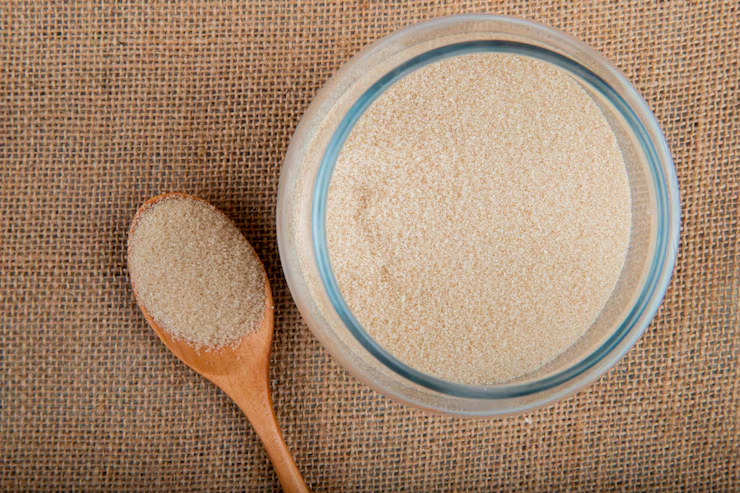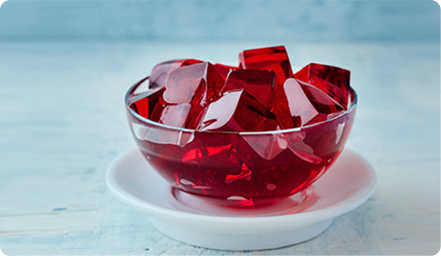-
July, 26,2025
Understanding the Role of Bloom Strength in Soft Gelatin Capsules
-
July, 25,2025
Bloom Strength and Its Impact on Hard Gelatin Capsules
-
July, 21,2025
How Gelatin Is Revolutionizing Pet Food: A Healthier Option for Dogs
-
June, 22,2025
Collagen as a Trusted Ingredient: Meeting Global Demand with Reliable Supply
Is Kosher Gelatin Halal?
Is Kosher Gelatin Halal? Many people assume kosher and halal are interchangeable, but when it comes to gelatin, the answer isn't so simple. This guide breaks down the key differences to help you decide what’s truly halal.
Understanding Kosher and Halal Dietary Laws
What Does Kosher Mean?
Kosher is a term derived from Jewish dietary laws (kashrut) that dictate what foods are permissible for consumption. These laws outline specific rules regarding the sources of food, slaughtering methods, and processing techniques. Kosher dietary regulations are detailed in the Torah and further explained in the Talmud.

What Does Halal Mean?
Halal refers to foods and beverages permissible according to Islamic law, as defined in the Quran and Hadith. Halal food must not contain any ingredients derived from haram (forbidden) sources, such as pork or alcohol. Additionally, meat must be slaughtered according to Islamic guidelines, which include invoking the name of Allah before slaughter.
The Composition of Kosher Gelatin
What Is Kosher Gelatin Made From?
Kosher gelatin is typically derived from the following sources:
-
1. Beef (from kosher-slaughtered animals) – Some kosher-certified gelatin comes from cattle that have been slaughtered according to Jewish laws.
-
2. Fish Gelatin – Since fish is permissible in both Jewish and Islamic dietary laws, fish-derived gelatin is often accepted by both communities.
-
3. Vegetable-Based or Synthetic Alternatives – Some kosher gelatin is made from plant-based or synthetic sources, making it suitable for vegetarians and potentially acceptable in halal diets.
-
4. Pork-Based Gelatin (Certified Kosher by Certain Authorities) – Some Jewish authorities allow gelatin derived from non-kosher slaughtered animals under the belief that processing renders it kosher.

The Differences Between Kosher and Halal Gelatin
One of the key points of confusion is whether kosher standards align with halal standards—particularly when it comes to gelatin. While both traditions emphasize purity, ethical sourcing, and religious slaughter methods, they diverge in interpretation and application.
Kosher gelatin may come from pork, non-kosher beef, kosher-slaughtered beef, or fish. On the other hand, halal gelatin must strictly avoid any pork derivatives and must come from animals slaughtered according to Islamic law (zabiha). This means that not all kosher gelatin is halal, even if it is labeled as kosher.
| Criteria | Kosher Gelatin | Halal Gelatin |
| Permitted Pork Sources? | Sometimes allowed (by some Jewish authorities) |
Never allowed |
| Beef Source Requirements | Can be from kosher-slaughtered or processed beef |
Must be from halal-slaughtered beef |
| Fish Gelatin | Permissible | Permissible |
| Vegetarian/Synthetic Sources | Permissible | Permissible |
| Certification Standards | Based on Jewish dietary laws (Torah, Talmud) |
Based on Islamic law (Quran, Hadith) |
| Acceptable for Halal Use? | Depends on the source and Islamic scholarly interpretation |
Only if explicitly halal-certified |
Is Kosher Gelatin Halal According to Islamic Scholars?
Opinions That Deem Kosher Gelatin Halal
Some Islamic scholars argue that if kosher gelatin has undergone extensive chemical transformation (istihalah), it may be considered halal, regardless of its origin. This is similar to the argument that gelatin extracted from bones or hides undergoes such a significant change that it is no longer considered impure.
Opinions That Deem Kosher Gelatin Haram
Many scholars maintain that kosher gelatin is not necessarily halal because:
-
·If it is derived from pork, it remains forbidden in Islam.
-
·If it comes from non-halal-slaughtered animals, it is still considered haram.
-
·The certification of kosher does not automatically align with halal requirements.
How to Determine If Kosher Gelatin Is Halal?
Checking the Source of the Gelatin
To determine whether kosher gelatin is halal, check the following:
-
1. Ingredient Labeling – Ensure the product specifies the source of the gelatin.
-
2. Certification Logos – Look for both kosher and halal certifications.
-
3. Manufacturer Information – Contact manufacturers to clarify their sourcing and processing methods.
Common Products That Contain Kosher Gelatin
Kosher gelatin is commonly found in:
-
·Marshmallows
-
·Yogurt
-
·Gummy candies
-
·Puddings
-
·Certain pharmaceutical capsules
Alternatives to Kosher Gelatin for Halal Consumers
Halal-Certified Gelatin
Halal-certified gelatin is specifically sourced from halal-slaughtered animals or plant-based sources. This guarantees that it aligns with Islamic dietary laws.
For buyers seeking trustworthy gelatin sources that meet specific religious dietary requirements, Funingpu gelatin is a top-tier option. As a leading gelatin manufacturer, Funingpu offers both kosher gelatin and halal-compliant options, catering to diverse global markets. Their products are ideal for use in food, pharmaceuticals, and nutritional supplements. With a strong focus on purity and quality, Funingpu is also a reliable edible gelatin manufacturer offering gelatin powder wholesale to businesses worldwide. Whether you need certified kosher, halal, or clean-label gelatin, Funingpu ensures consistent supply and regulatory compliance.

Plant-Based Substitutes
-
1. Agar-Agar – A seaweed-derived gelatin alternative that is widely used in halal and vegetarian products.
-
2. Pectin – A fruit-based gelling agent, commonly used in jams and jellies.
-
3. Carrageenan – A plant-based thickening agent derived from red seaweed.
Final Thoughts
The question "Is kosher gelatin halal?" does not have a one-size-fits-all answer. It depends on the source of the gelatin and the interpretation of Islamic scholars. While some kosher gelatin may be halal-friendly, others are not, particularly those derived from pork or non-halal slaughtered animals. To ensure compliance with halal dietary laws, it is always best to check the certification and source of the gelatin before consumption.
Need a kosher-friendly gelatin source you can trust? Explore premium-quality gelatin solutions from Funingpu gelatin—a globally recognized gelatin powder wholesale and edible gelatin manufacturer. Funingpu also offers kosher-certified gelatin, making it a versatile choice for a wide range of dietary and religious needs.
Phone: +86-577-88105990
Mobile: +86-138 5886 1938
Official Website: www.fnp-gelatin.com
Email: sales@funingpu.com
Address: No. 1-10 Wenpu Road, Yacheng Town, Xiapu County, Ningde City, Fujian Province




